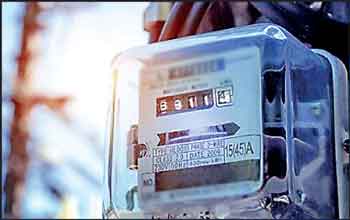Thursday Feb 19, 2026
Thursday Feb 19, 2026
Tuesday, 5 December 2023 00:56 - - {{hitsCtrl.values.hits}}
 In a concerning development, around 700,000 electricity users constituting over 10% of the total, have been issued red notices by the Ceylon Electricity Board (CEB), demanding the settlement of overdue payments within a tight 45-day window.
In a concerning development, around 700,000 electricity users constituting over 10% of the total, have been issued red notices by the Ceylon Electricity Board (CEB), demanding the settlement of overdue payments within a tight 45-day window.
The move comes as a consequence of a growing trend where over 6.5 million electricity users consistently fail to meet their payment deadlines, prompting the CEB to take stringent measures.
Despite the CEB’s red notices aim to compel users to clear their outstanding dues, a substantial number of electricity users are voicing their grievances, lamenting the challenges posed by the high cost of living.
Many users pointed out that their limited disposable income forces them to prioritise essential bills, leading to a delicate juggling act to manage various financial obligations.
“The disposable income is very limited as prices have soared over everything. Hence, the essential bills are settled on a priority basis to ensure that all bills can be managed. If electricity is paid this month, we have to avoid paying for water during the same month. That’s how we are compelled to manage the costs,” they stressed.
They also argued the rationale for the CEB to increase tariffs in October citing insufficient rainfall, the country had showers for a good two months consecutively.
CEB Media Spokesperson Nandika Pathirage acknowledged the contrast in payment behaviours among users. “Although the red notices are issued to 10% of electricity users, only a mere 1% comply with the settlement demands,” he added.
He also said the financial strain on the CEB, revealing that the Treasury is no longer providing funding, leaving the Board with no choice but to enforce disconnections to recover the overdue payments. The disconnections also include a fee for reconnection for electricity users.
Last month, the former Public Utilities Commission Chairman Janaka Ratnayake also raised serious allegations against the hike in electricity tariffs and its potential repercussions on economic sustainability.
He cited data indicating over 100,000 monthly electricity disconnections, each of which incurs a Rs. 3,000 reconnection fee, resulting in the CEB enjoying an additional monthly earning of Rs. 300 million.
Ratnayake accused the CEB of prioritising financial gain over consumer welfare, deeming this practice as illegal and policy-wise unsound.